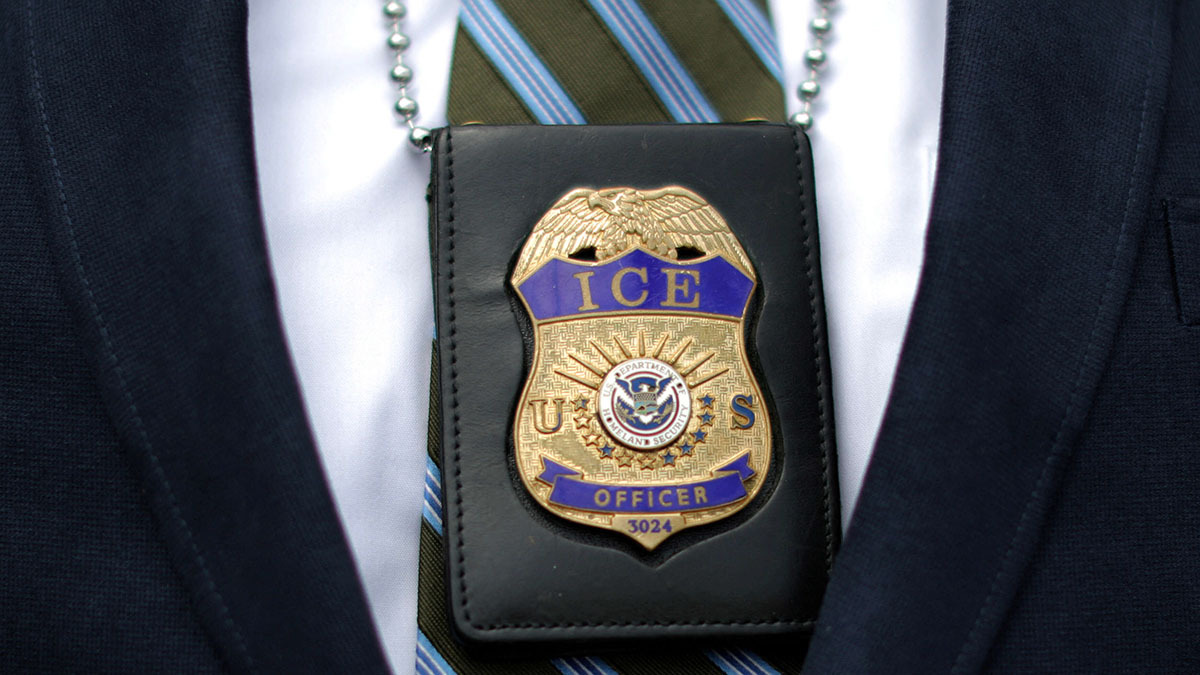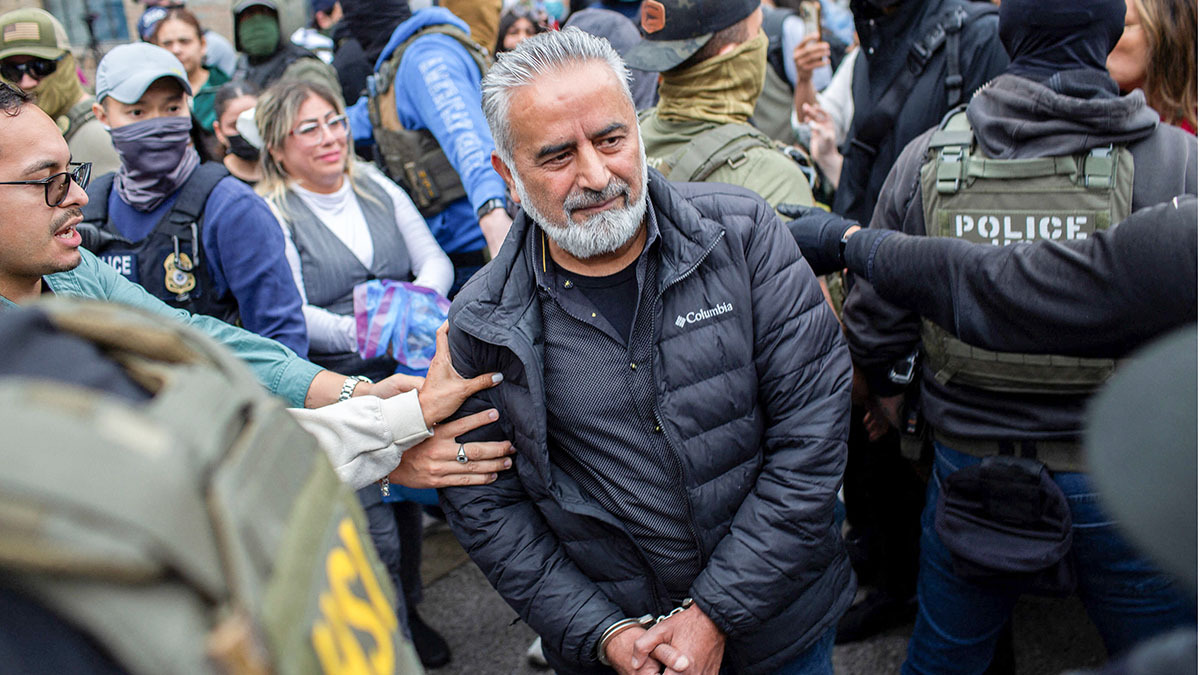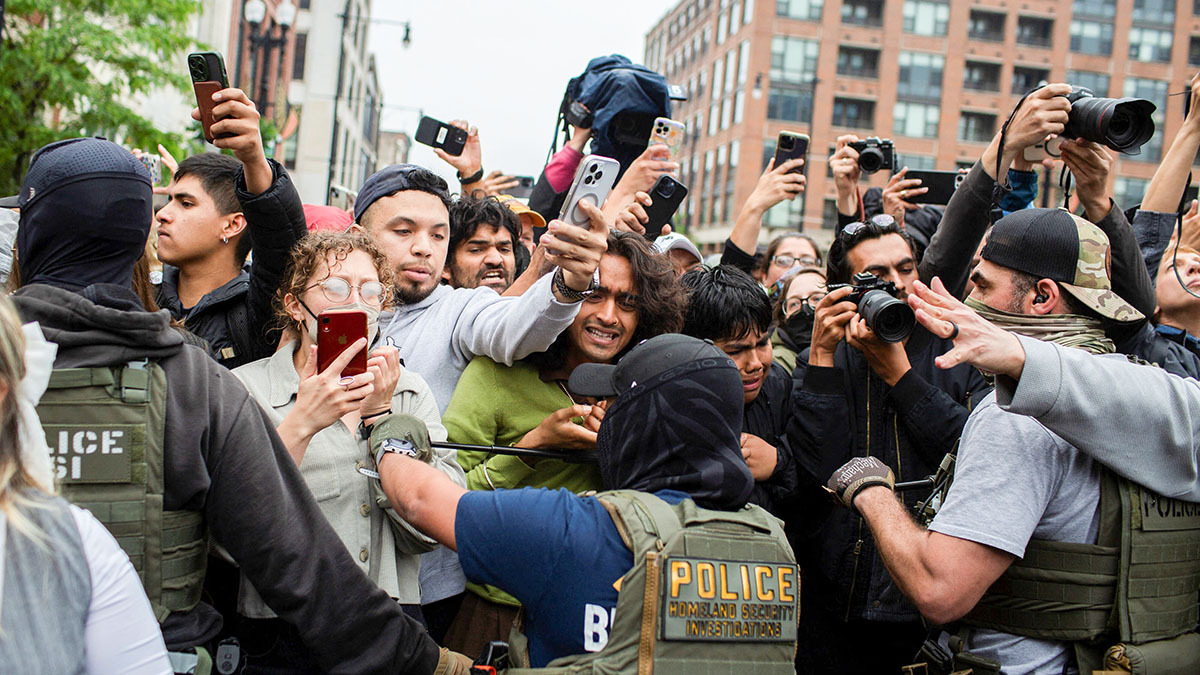Trump signs immigration ban against 19 countries on national security grounds

A new executive order signed by US President Donald Trump has once again placed the controversial strategy of immigration restrictions based on nationality at the centre of political and legal debate. Under the argument of ‘prioritising national security above all other considerations’, the presidential proclamation completely suspends entry into the United States for citizens of 12 countries and partially restricts entry for nationals of seven others.
The measure, which will take effect on Monday 9 June, affects citizens of Afghanistan, Myanmar, Chad, the Republic of Congo, Equatorial Guinea, Eritrea, Haiti, Iran, Libya, Somalia, Sudan and Yemen, who will be prohibited from entering the country in any category, except in exceptional cases. At the same time, partial restrictions will be applied to nationals of Burundi, Cuba, Laos, Sierra Leone, Togo, Turkmenistan and Venezuela.
The proclamation, officially announced on Wednesday from the White House and accompanied by a video in which Trump reaffirms his commitment to ‘protecting the American people,’ justifies this new wave of restrictions based on security reports prepared by the Secretary of State, the Department of Homeland Security and other intelligence agencies. These documents conclude that the countries affected have critical deficiencies in their identity verification systems, information sharing, high rates of overstays on expired visas, and in some cases, the active presence of terrorist organisations in their territories.

One of the examples cited in the document is Afghanistan, where the Taliban's control of the country makes it impossible to verify the authenticity of documents issued. Cases such as Chad and Myanmar are also mentioned, which have a worrying number of citizens who do not leave the United States when their tourist or study visas expire. According to Trump, these ‘gaps in the immigration system’ have been exploited in the past by individuals with hostile intentions, reinforcing the need for preventive measures.
"We cannot have open migration from any country where we cannot safely and reliably vet and screen... That is why today I am signing a new executive order placing travel restrictions on countries including Yemen, Somalia, Haiti, Libya, and numerous others." –President Trump pic.twitter.com/ER7nGM4TO2
— The White House (@WhiteHouse) June 4, 2025
Although the proclamation is firm in tone, it is not without nuance. The decree details a number of clear exceptions, such as legal permanent residents of the United States, dual nationals using a passport issued by a non-restricted country, diplomats, athletes participating in high-level international competitions, adopted children, or individuals who collaborated directly with the US government, such as Afghan interpreters.
It also provides for the possibility of granting special exceptions if the Secretary of State, the Attorney General or the Secretary of Homeland Security determine that the entry of a particular person is in the critical national interest, whether for strategic, judicial or humanitarian reasons.

Trump stressed in his speech that this measure is a direct continuation of the course of action he began during his first term. He recalled that in January 2017, he imposed a similar ban on citizens of Muslim-majority countries, which was challenged in court but upheld by the Supreme Court in 2018. That policy was reversed by President Joe Biden in 2021, who argued that it was a ‘xenophobic and discriminatory’ initiative.
The new proclamation has provoked immediate reactions from Congress. Democratic lawmakers such as Adam Schiff and Ed Markey expressed their rejection on social media, accusing Trump of repeating practices that ‘incorporate intolerance and hatred into U.S. immigration policy’ and warning that they will not contribute to strengthening the country's security. In addition, legal experts anticipate a flood of lawsuits from civil rights groups, which have already described these actions as a form of ‘institutionalised discrimination’ in the past.

One of the most striking aspects of the announcement is the exclusion of Egypt from the list, despite the country being at the centre of media attention this week following the attack in Boulder, Colorado, allegedly carried out by an Egyptian citizen. Trump made explicit reference to this attack, committed against Jewish protesters, but stated that conditions in Egypt are still under review. In this regard, the Secretary of State, in collaboration with the Attorney General and the Director of National Intelligence, will conduct a comprehensive review to assess whether Egyptian control mechanisms meet the standards required by the new policy.
This is Trump’s reckless first term travel ban all over again.
— Adam Schiff (@SenAdamSchiff) June 5, 2025
Just like before, Trump’s expanded ban on travelers from around the world will not improve our national security and will only further isolate the U.S. from the rest of world.
Bigotry is not a national security…
The decree also includes a periodic review mechanism, coordinated between the State, Homeland Security and Justice departments, to update the list of affected countries. This review may lead to the addition of new nations, the removal of restrictions or the modification of terms depending on the progress or setbacks demonstrated by each country in its security, documentation and international cooperation practices.










